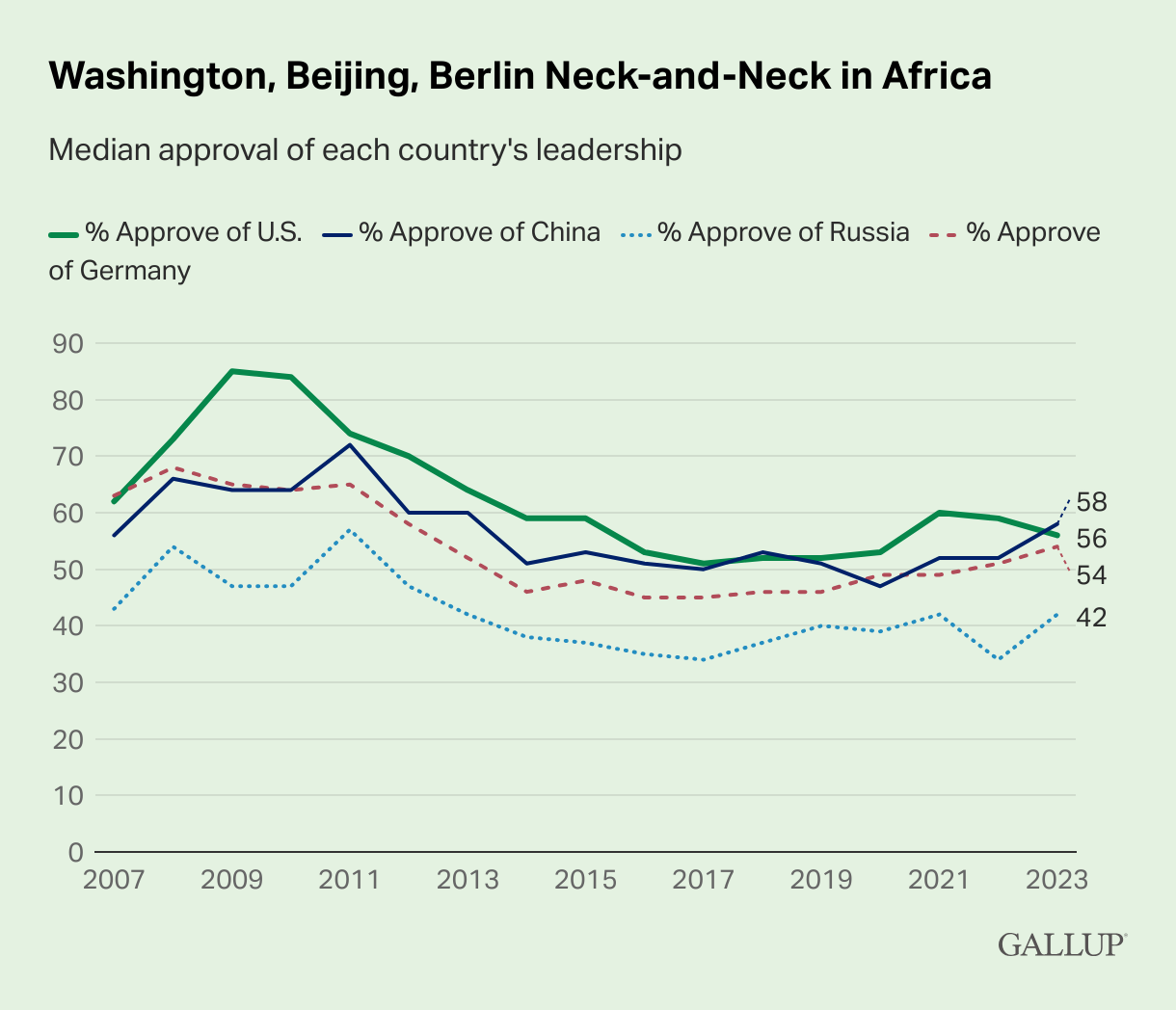The 209th Block: Homo interruptus
And China's soft power
This week…
Your reading time is about 9 minutes. Let’s start.
In planning this week’s edition, I found myself constantly self-interrupting. At first, I wanted to write an abridged timeline that led to the normalisation of Internet sleuthing—the good, the bad, the ugly. While sometimes good things happen, broadly, the true crime genre has driven people to cross boundaries with irreparable damages and no consequences. That is no better than the outcomes of police investigations! (This is a statement I made up, but I am willing to bet $100 on it.) I used to joke that a dedicated journalist is a better investigator than the silly police, but neither is better than obsessive Internet sleuths—but I don’t find it funny anymore!
Then, my attention turned to China’s soft power and how much influence guochao might have on that. Guochao is a movement in China where mostly Millennial and Gen Z consumers gravitate towards brands with Chinese culture and style. This isn’t about being made in China; anything can literally be Made in China without its cultural dimension. Instead, guochao is a symbol of Chinese culture—even if a product is not made in China. And then, M. Berthelot wrote about it (in French) in the newsletter 7 About. While it may not be a long read—the newsletter’s concept explores cultural innovations summarised in seven points for a seven-minute reading every seven days—it would have been similar to what I would have done here anyway. (I don’t usually have time for thousand-word essays.)
Then, I had the audacity to interrupt myself again with… well, a self-reflection on how I deal with interruptions. Not, you know, socially responsible interruptions due to an immediate threat to your safety. Or a sighting of the most adorable dog on the planet. And I’m also not talking about turn-taking. That’s fine. I’m talking about dealing with chronic interrupters where you suddenly have two or three separate conversations like it’s Pulp Fiction (1994) for no good reason. Let the man finish his story, I want to listen to it without ad breaks about your vague, insignificant link to this main storyline! You can tell your story after! And it usually feels like a forced connection, anyway. “I’m from Malaysia and I moved to…” “Oh, really? I went to Thailand once in 1994! Have you been to Phuket?”
I hated it. Being interrupted is a major pet peeve. I used to get upset about it, but I’m at the stage where I am usually just embarrassed about it if it happens in the presence of others, otherwise, I am indifferent about it. In an ideal world, I don’t want to be part of this dynamic at all. In reality, I limit my participation in conversations when there are so many things happening that could cause interruptions at any time (kids fighting, pets playing, the water boiling, the washer going, etc.) and I prefer to talk to known interrupters via non-verbal means (texts, usually). These are things I can control. I am not interested in telling people what to do.
What still annoys me is that in the many readings I’ve done about it, the onus to improve the situation seemed to be on the interrupted instead of the interrupter.
Be more assertive!
Address interrupting before you start talking!
Discuss interrupted interactions at a different, neutral time!
Ignore the interruption and keep talking!
Stop talking altogether!
Walk away!
Do they think I have not tried these? Do they think it would go well? The psychology of interrupting, among other things, has to do with self-centredness, lack of self-awareness, assertion of control, and you know, a list of things that sounds like they have clinical narcissism and/or ADHD. I think these columns should focus on them, the interrupter, instead of the interrupted!
But, the reason I settled on drawing your attention, dear readers, to Homo interruptus, is so that when you read the subsequent sections of this newsletter, consider the scenarios that often play out on the Internet, particularly the comment section: The trolling, the hijacking, the ░M░Y░P░ U░S░S░ Y░I░ N░B░I░O bots, the delusions of grandeur and whataboutme-ism... The Internet is very much H. interruptus personified. It’s inescapable.
And now, if you may excuse the abrupt interruption to this rant, here’s a selection of top stories on my radar, a few personal recommendations, and the chart of the week.
ICYMI: The Previous Block on app crackdowns, the media industry’s struggles, and bad AI. CORRECTION NOTICE: None notified. DEATH OF THE INTERNET
We can have a different web
Molly White for Citation Needed:
As a lifelong lover of the web, it's hard not to feel a little hopeless right now.
Search engines — the window into the web for many people — top their results with pages containing thousands of words of auto-generated nothingness, perfectly optimized for search engine prominence and to pull in money via ads and affiliate links while simultaneously devoid of any useful information.
Social networks have become “the web” for many people who rarely venture outside of their tall and increasingly reinforced walls. As Tom Eastman once put it, the web has rotted into “five giant websites, each filled with screenshots of the other four”. Within those enclosures, the character limits, neutered subset of web functionality, and constant push to satisfy the enigmatic desires of an algorithm tuned to keeping eyeballs on the platform encourage sameness, vapid engagement farming, and rage bait while stifling creativity.
Newspapers, whose evolution towards online models once stoked optimism for more accessible and dynamic journalism that could lead to a more informed and democratically engaged citizenry, have become luxury goods as aggressive paywalls and expensive subscription models are increasingly deployed by the hedge funds and other profit-hungry entities that control these papers. Some use the excuse that they're trying to protect their journalism from the unsanctioned scraping by companies training ever-hungrier artificial intelligence models. Yet those same media outlets hasten their own demise with wave after wave of layoffs, or by chasing harebrained schemes like churning out tedious clickbait or their own AI-generated soup even as their executives continue to cash huge checks.
I want to believe. Loosely linked:
How a 4chan conspiracy (kind of) foresaw the death of the internet by Günseli Yalcinkaya for Dazed.
Instagram’s updated algorithm prioritizes original content instead of rip-offs by Mia Sato for The Verge.
The revenge of the home page ($) by Kyle Chayka for The New Yorker.
A history of online public messaging by Jeremy Reimer for Ars Technica.
The media brand with one email newsletter, 15 staff and $15m revenue by Jim Edwards for Press Gazette.
SLEUTHING, STALKING, SCAMMING
Why row over Baby Reindeer sleuths will change real-life drama for ever
Vanessa Thorpe for The Guardian:
In the last few days, the writer, actors – and the real people portrayed in Baby Reindeer – have been drawn into a fiery debate, driven by the work of determined social media sleuths, with lawyers and the police called in. One misidentified high-profile man is threatening legal action against those who suggested he was guilty of a sex crime portrayed in the show.
Media lawyer Mark Stephens, of Howard Kennedy, said: “The new culture of people trying to solve a crime, or becoming internet detectives, is incredibly dangerous. Of course, programme-makers like to say it’s a real story, but it is only a matter of time until an investigation is ruined by amateurs, perhaps by spoiling a crime scene or damaging evidence.
Stalking an (alleged) stalker? No lesson learned. Loosely linked:
”Everyone Knows That”: Internet music mystery solved via 1986 adult movie by Ben Beaumont-Thomas for The Guardian.
Have you seen this man? He's a big deal in Austria — and romance scammers like using his face by Erica Johnson and Kimberly Ivany for CBC.
Match Group CEO Bernard Kim on romance scams: “Things happen in life” by Jim Axelrod, Sheena Samu, Andy Bast, and Matthew Mosk for CBS.
What are job scams and how can you protect yourself? by Dimitrios Salampasis (Swinburne University of Technology) for The Conversation.
The coyote influencer on TikTok by Carlos Gonzales for Bellingcat.
DIGITAL COLONIALISM
AI in Africa opens up new battlefront for China, U.S.
Martin K.N. Siele for Semafor:
The two countries have in recent weeks stepped up efforts to collaborate with African countries on attracting AI investment and formulating policy.
At the American Chamber of Commerce Business Summit in Nairobi last week, U.S. Commerce Secretary Gina Raimondo and the Kenyan government signed a partnership agreement meant to enable American companies to invest in artificial intelligence and data centers in Kenya, East Africa’s largest economy.
[…]
China declared its intention to collaborate with African countries on AI at the China-Africa internet summit in the southeastern port city of Xiamen earlier in April, where discussions focused on China-Africa cooperation in the area. China’s Cyberspace Administration pushed for the establishment of a China-Africa AI policy as well as the promotion of AI technology research, development and application including in African learning institutions.
Free lab mice! Loosely linked:
China signals a loosening of data and AI governance ($) by Jonathan Dove for The Diplomat.
African universities are failing to prepare tech graduates for jobs in AI by Kimberly Mutandiro for Rest of World.
Are Chinese-made skincare brands downplaying their origins to appeal to Southeast Asians? by Aisyah Llewellyn for SCMP via MSN.
Microsoft to open new data centre in Thailand as it doubles down on AI and Southeast Asia by Sheila Chiang for CNBC.
Japan’s Kishida unveils a framework for global regulation of generative AI for AP.
What I read, listen, and watch…
I’m reading Black Boys Like Me (2024) by Toronto educator Matthew R. Morris. If you went to school in North America, how many of your teachers were Black?
I’m listening to On the Media’s episode where host Brooke Gladstone spoke with Jing Tsu, professor of East Asian Languages and Literatures & Comparative Literature at Yale on the rise of Chinese science fiction.
I’m watching the second part of Yang Zhang’s video essay on Accented Cinema about the cinematic themes and visuals of ancient China.
Other curious links, including en español et français:
On ‘China’s Instagram’, women find a space to discuss the routine and taboo by Erin Hale for Al Jazeera.
Experts condemn US tobacco firm’s sponsorship of doctor training as ‘grotesque’ by Kat Lay for The Guardian.
The far right’s campaign to explode the population by Gaby Del Valle for Politico.
Debugging tech journalism by Timothy B. Lee for Asterisk.
Israeli media’s inevitable hysteria over U.S. campus protests by Anat Saragusti for 972 Mag.
The seven lies of the AI expert who cited himself thousands of times on scientific papers by Manual Ansede for El País.
Dale con la silla: la memificación del debate electoral por Adrián Chávez en Gatopardo.
El Gobierno aprueba la Ley de Influencers: controlará su contenido y publicidad... pero afectará a muy pocos por Marcos Merino en Genbeta.
El fenómeno de los ‘influencer’ gastronómicos: cuando comer bravas acaba pagando el alquiler por Mora Bonzano en El País.
Pédophilie, prostitution, guet-apens... On ne peut plus laisser cette zone de non-droit, interpelle une victime du site Coco par Stéphane Pair dans France Info.
Elections européennes 2024 : les obsessions antimigrants, antiwoke, anti-écolo des partis d’extrême droite européens par Mathilde Damgé dans Le Monde.
Les algorithmes : des boîtes noires, vraiment ? par David Monniaux (Université Grenoble Alpes) dans The Conversation.
Chart of the week
The U.S. is losing its soft power edge in Africa while China’s popularity grows, according to a new Gallup report by Benedict Vigers.
And one more thing
Travis Hartman, Prasanta Kumar Dutta, and Jason Lange with an interactive piece and a reminder about the limitations of polling for Reuters.




